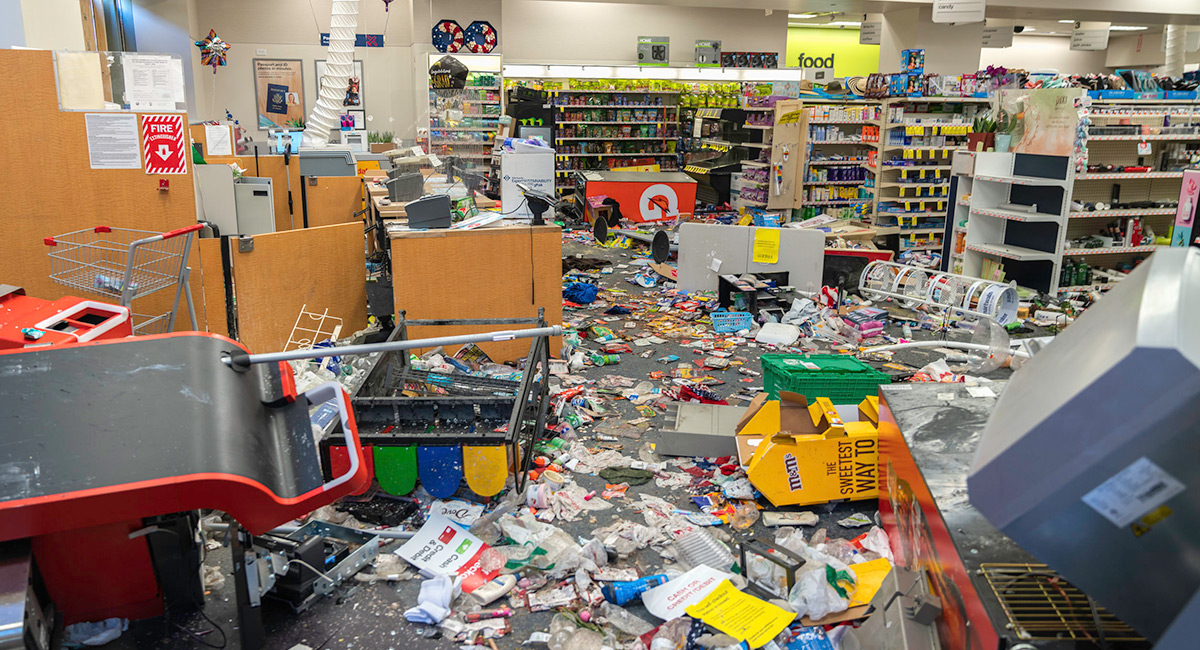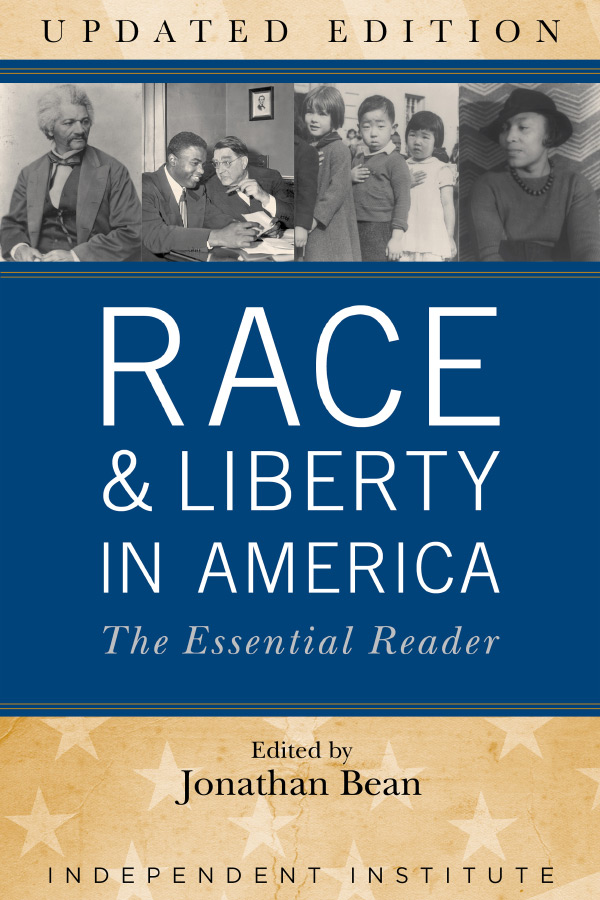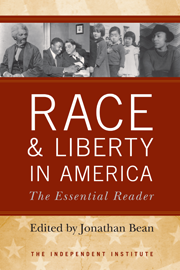The rioting, looting and wave of arson hitting cities around the nation following the death of George Floyd at the hands of Minneapolis police is much like the disturbances that convulsed American cities in the 1960s.
Many of the riots that erupted between 1965 and 1968 were sparked by racial discrimination against African-Americans and incidents between them and police. The biggest wave of riots occurred in 1968 following the assassination of Martin Luther King, the most prominent African-American of his day in the fight for equal rights.
The killing on Memorial Day this year of George Floyd, a black man unknown at the time to most Americans, sparked riots not because he was famous but because his horrific death was captured on video. A police officer knelt on Floyd’s neck for nearly nine minutes and three other officers failed to intervene—despite Floyd’s desperate cries for help saying he could not breathe.
All four officers have been fired and now face charges of second-degree murder or aiding and abetting second-degree murder in Floyd’s death. The philosopher and writer George Santayana famously said in 1905: “Those who cannot remember the past are condemned to repeat it.” And in fact, that wise observation holds true today. In some respects, we’re reliving the 1960s and watching some of our leaders make the same mistakes an earlier generation of leaders made over 50 years ago during the last wave of rioting.
About 70 percent of all Americans living today either weren’t born or weren’t old enough to know what was going on from 1965 to 1968. So it’s useful to look back and learn from what went wrong then.
Between 1965 and 1968 hundreds of riots tore through U.S. cities, leaving many people dead, thousands of small businesses in ruins and the liberal urban agenda of the 1960s discredited. More and more Americans embraced “law and order” as a better response to the chaos. Tragically, it was residents of the riot zones—mostly African-Americans—who suffered the most.
Five days after President Lyndon Johnson signed the Voting Rights Act of 1965 into law, the first major riot erupted in the Watts district of Los Angeles. It began after a California Highway Patrol officer arrested an African-American man for driving while intoxicated. Accounts vary over whether there was excessive force used when the man resisted arrest.
Subsequent riots also occurred as a result of incidents involving the police. On July 23, 1967, after police raided an illegal after-hours bar in Detroit, the Motor City exploded. Some 2,500 businesses were looted, nearly 1,500 buildings were torched, 43 people were killed and 342 people were injured.
Perhaps most well-remembered are the riots that followed Martin Luther King’s assassination the following year. Rioting took place in more than 100 cities, including the nation’s capital. Property damage in Washington alone was estimated at $27 million—more than $204 million in today’s dollars.
The 1960s riots occurred against a backdrop of civil rights protests. African-Americans had legitimate complaints about schooling, employment discrimination and poor housing, among other concerns. Yet black people in the riot zones overwhelmingly opposed what was going on.
In a Harris poll taken in the aftermath of the Detroit riot, 68 percent of African-Americans surveyed characterized the looters as “criminals.” The same percentage felt that violence hurt the cause of civil rights.
Many white liberals, on the other hand, conflated the riots with civil rights protests, failing to make any distinction.
In a March 1969 interview, White House aide Harry McPherson—President Johnson’s favorite speechwriter—recalled that the White House would issue statements denouncing rioters but adding “an apologetic ‘Of course, we understand why you rioted.’...It was that ambivalence of the liberal.”
Today’s liberals seem to have lost any such ambivalence.
Yet those on the left have much to lose if Americans reject the romanticizing of violence—just as liberals lost in 1968 with the election of “law-and-order” Republican presidential candidate Richard Nixon.
Just last week, President Trump said that “I am the president of law and order.” He no doubt hopes to ride to reelection on that label, just as Nixon was first elected 52 years ago.
That’s why today’s liberals would be wise to listen to former President Barack Obama, who wrote June 1 in the online magazine, Medium: “Let’s not excuse violence, or rationalize it, or participate in it. If we want our criminal justice system, and American society at large, to operate on a higher ethical code, then we have to model that code ourselves.”
One of the saddest outcomes of riots is the destruction of small mom-and-pop businesses that have little chance of starting over. The riots of the 1960s involved the looting of at least 10,000 businesses, according to research in the African-American studies journal Phylon.
With the riots in the 1960s and also since Floyd’s death rationalized as “protest”—and the police for several days told to stand down in many communities (“it is better to let them loot than shoot,” the saying goes)—merchants watched as their stores were emptied and then often burned.
Rioters were and still are in some places granted a moral holiday. Their neighbors—the merchants and their customers—are forced to pay the price.
Then and now, store employees lost their jobs, merchants their livelihoods, and consumers the convenience of nearby places to shop. One difference today: rioters loot Walmart and torch Target—discount chains that didn’t operate in black neighborhoods in the 1960s.
Civil rights activists complained then that the “poor paid more” because chain stores avoided the inner city. The looting of Target, headquartered in George Floyd’s Minneapolis, is thus an ironic demonstration of the progress made in consumer choices for residents of low-income neighborhoods. But as they say, no good deed goes unpunished.
It’s time to retire the worn-out riot ideology of the 1960s. Riots are not a form of protest; indeed, they hurt the cause of civil rights and are a source of injustice to those who suffer from the looting and arson.
Few of those living in the midst of the riots share the easy illusions of those who hammer the unrest into a civil rights framework. If it is too much to ask President Trump to speak eloquently on the subject, we need to hear from those like President Obama and the residents themselves who cry out for this not to happen again.










